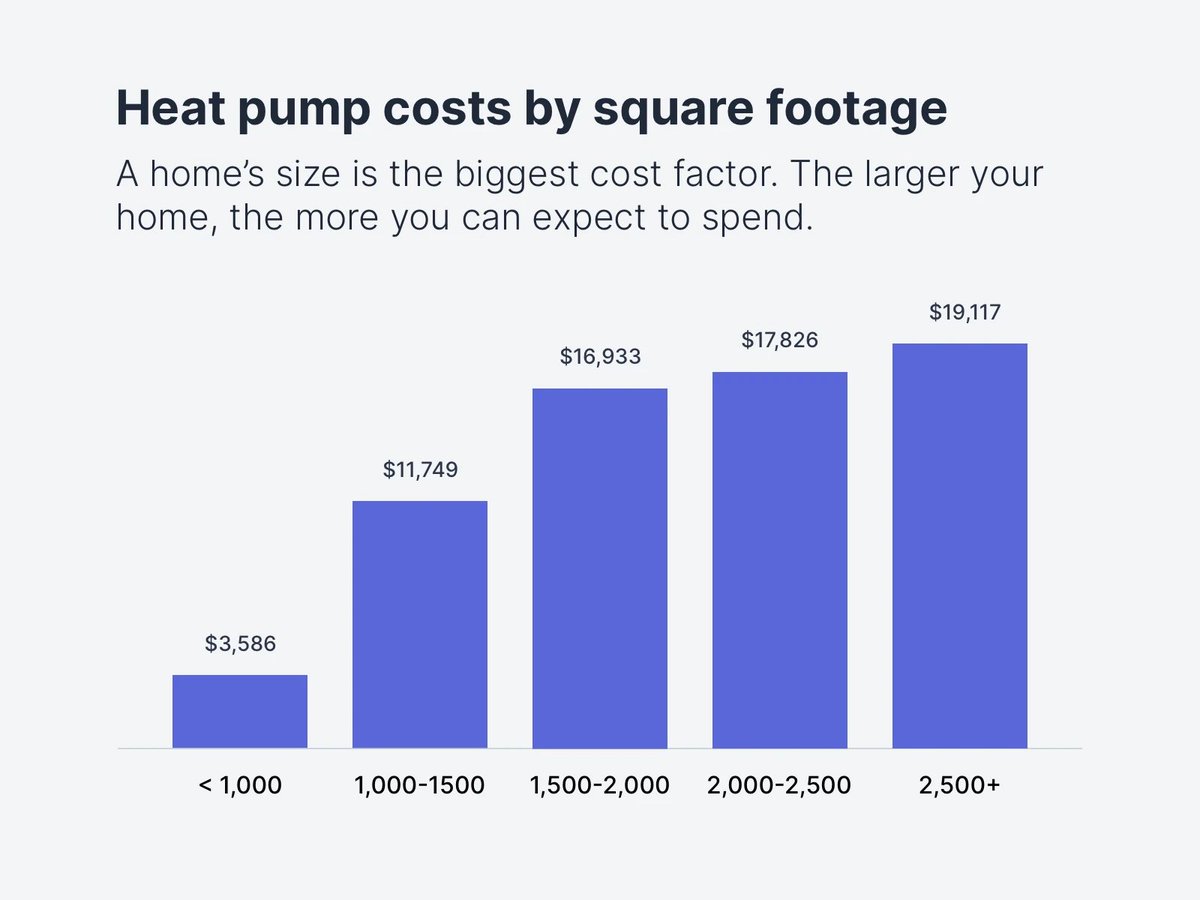
Heat pumps are an essential climate solution. But there's very little data on how much they actually cost.
To fill some of the gap, we surveyed homeowners and analyzed publicly available data.
Here's what we learned:
🧵
#energytwitter #climatetwitter
To fill some of the gap, we surveyed homeowners and analyzed publicly available data.
Here's what we learned:
🧵
#energytwitter #climatetwitter
First, I should start with the problem that motivated this research:
Most data on the cost of heat pumps is widely inaccurate.
If you look up how much a heat pump costs on Google, you'll probably land on a page from This Old House, Angi, or HomeAdvisor.
Most data on the cost of heat pumps is widely inaccurate.
If you look up how much a heat pump costs on Google, you'll probably land on a page from This Old House, Angi, or HomeAdvisor.
@ThisOldHouse says they cost between $3,500 and $7,500.
@angi_home and @HomeAdvisor will tell you the average cost is $5,700.
But like so many articles online, these pages have no source or indication of where those numbers come from.
@angi_home and @HomeAdvisor will tell you the average cost is $5,700.
But like so many articles online, these pages have no source or indication of where those numbers come from.
If you call a contractor and ask them how much a heat pump costs, they'll tell you "It depends."
I've heard contractors quote ranges as broad as $5,000 to $40,000.
For homeowners, this lack of information makes for a terrible experience.
I've heard contractors quote ranges as broad as $5,000 to $40,000.
For homeowners, this lack of information makes for a terrible experience.
The goal of our research was to solve part of this problem and make it easier for homeowners to estimate the cost of installing a heat pump in their home.
Here were the main takeaways:
Here were the main takeaways:
According to our survey results, the average cost of a heat pump is $14,000 after rebates.
But unsurprisingly, there's a huge range in what homeowners pay.
But unsurprisingly, there's a huge range in what homeowners pay.
The biggest cost factor is obviously home size.
If you live in a McMansion, you can expect to spend more than the average.
If you live in a McMansion, you can expect to spend more than the average.

Another big factor: the location of your home.
In the South, heat pumps have been installed for decades so the market is more mature and costs are lower.
In the Northeast and West, where homes have traditionally been heated with gas and fuel oil, costs are higher.
In the South, heat pumps have been installed for decades so the market is more mature and costs are lower.
In the Northeast and West, where homes have traditionally been heated with gas and fuel oil, costs are higher.

One of the biggest wildcards in the cost equation: rebates.
Some homeowners we surveyed got $0 in rebates. Others got as much as $14,000.
NY and MA had some of the best rebates, offering homeowners between $2,500 and $10,000 to get off fossil fuels.
Some homeowners we surveyed got $0 in rebates. Others got as much as $14,000.
NY and MA had some of the best rebates, offering homeowners between $2,500 and $10,000 to get off fossil fuels.
My biggest takeaway from this research is that there's still so much work to do if we want to #electrifyeverything.
For many homeowners, a heat pump will save them money over its entire lifespan.
For many homeowners, a heat pump will save them money over its entire lifespan.

But we live in a world where the green bar above (upfront cost) is what matters to most people.
It's going to be hard to get heat pumps in every home by 2050 if they cost $14,000.
We need to drive those costs down significantly.
It's going to be hard to get heat pumps in every home by 2050 if they cost $14,000.
We need to drive those costs down significantly.
In order to do that, we need policy change, innovation, and honestly just more people trying to solve this problem.
I'm grateful for the people at @rewiringamerica, @NRDC, @SierraClub, @neepenergy, and @RockyMtnInst for their work on this problem.
I'm grateful for the people at @rewiringamerica, @NRDC, @SierraClub, @neepenergy, and @RockyMtnInst for their work on this problem.
If you made it this far, thanks for reading!
You can support our work by giving this thread a RT or signing up for our newsletter below.
carbonswitch.com/newsletter/
You can support our work by giving this thread a RT or signing up for our newsletter below.
carbonswitch.com/newsletter/
• • •
Missing some Tweet in this thread? You can try to
force a refresh





